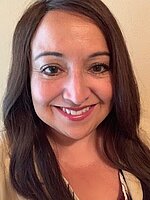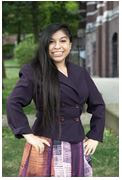Dear Colleagues,
The Division A Equity, Inclusion & Action (EIA) Committee has been working diligently on planning for AERA 2023 and on two important endeavors that center social justice and antiracism in educational leadership and administration: 1. the Literature in Action professional learning series, and 2. the Equity Audit of the Division A program annually.
With excitement, our committee announces two featured AERA 2023 sessions developed and organized to critically engage with equity, justice, and inclusion. Invited education leadership scholars will interrogate and explain the criticality of engaging in social justice work now, as it is more pronounced than ever in politics, policies, programs, and practice. Further, they address the complex and complicated matters that surround doing this type of work in research, teaching, and practice and ways to move forward through critical scholarship, advocacy, and activism. We hope that these sessions will provide a generative space for doctoral students, practitioners, scholars, and community members who are equity-minded to gather in solidarity, to build relationships to sustain this work, and to bridge knowledges and experiences that propel transformative future directions. A description of each session follows:
Vice Presidential Session: Cultivating Critical Consciousness to Decolonize Educational Leadership, Research, and Praxis
Abstract: Education scholars and leaders continually navigate the tensions and challenges posed by censorship and the delegitimization of critical theories in curricula, research, and practice. Thus, it is incumbent upon the educational leadership community to affirm philosophies, knowledges, and truths in learning, leading, and teaching to advance perspectives and experiences traditionally silenced in the canons of research and praxis. Such affirmations draw on a critical consciousness approach that harbors thinking, being, and doing to confront the challenges of consequential education research related to race and ethnicity, women, gender, dis/ability, indigeneity, immigration, and sexual orientation. This session features scholars in educational leadership who discuss enacting critical consciousness and decolonization in varied educational settings.
Invited Scholars: Judy Alston, Susan Faircloth, Muhammad Khalifa, Juan Manuel Nino, Angela Valenzuela
Mentorship Session: Self-Care, Healing, & Social Justice Advocacy in a (Post)COVID Context
Abstract: Education scholars engaged in equity, inclusion, and action-focused work often experience challenges that have broad-reaching implications. The Division A EIA Committee invited scholars, at different stages in their careers, who engages in social justice and equity-focused leadership, to dialogue with participants around the following questions: How can scholars, at different points in their careers, sustain themselves in their commitment to social justice and equity-focused leadership? What are strategies for conflict resolution and personal healing? What can we learn from scholars in the field who are actively engaged in equity-focused and justice-oriented work? Our mentoring session is intentionally structured to create intimacy among scholars because mentoring relationships are more likely to develop from small groups and individual conversations. Thus, we seek to create space where invited scholars and attendees can discuss challenges and strategies for social justice advocacy with transparency and honesty.
Invited Scholars: Ain Grooms, Decoteau Irby, Van Lac, Kofi Lomotey, Melissa Martinez, Lolita Tabron
EIA Committee’s Initiatives
The Equity, Inclusion & Action Committee Team
The EIA committee consists of dedicated scholars whose work engenders social justice commitments. To learn more about them and their work please click here.
The Division A Equity, Inclusion & Action (EIA) Committee has been working diligently on planning for AERA 2023 and on two important endeavors that center social justice and antiracism in educational leadership and administration: 1. the Literature in Action professional learning series, and 2. the Equity Audit of the Division A program annually.
With excitement, our committee announces two featured AERA 2023 sessions developed and organized to critically engage with equity, justice, and inclusion. Invited education leadership scholars will interrogate and explain the criticality of engaging in social justice work now, as it is more pronounced than ever in politics, policies, programs, and practice. Further, they address the complex and complicated matters that surround doing this type of work in research, teaching, and practice and ways to move forward through critical scholarship, advocacy, and activism. We hope that these sessions will provide a generative space for doctoral students, practitioners, scholars, and community members who are equity-minded to gather in solidarity, to build relationships to sustain this work, and to bridge knowledges and experiences that propel transformative future directions. A description of each session follows:
Vice Presidential Session: Cultivating Critical Consciousness to Decolonize Educational Leadership, Research, and Praxis
Abstract: Education scholars and leaders continually navigate the tensions and challenges posed by censorship and the delegitimization of critical theories in curricula, research, and practice. Thus, it is incumbent upon the educational leadership community to affirm philosophies, knowledges, and truths in learning, leading, and teaching to advance perspectives and experiences traditionally silenced in the canons of research and praxis. Such affirmations draw on a critical consciousness approach that harbors thinking, being, and doing to confront the challenges of consequential education research related to race and ethnicity, women, gender, dis/ability, indigeneity, immigration, and sexual orientation. This session features scholars in educational leadership who discuss enacting critical consciousness and decolonization in varied educational settings.
Invited Scholars: Judy Alston, Susan Faircloth, Muhammad Khalifa, Juan Manuel Nino, Angela Valenzuela
Mentorship Session: Self-Care, Healing, & Social Justice Advocacy in a (Post)COVID Context
Abstract: Education scholars engaged in equity, inclusion, and action-focused work often experience challenges that have broad-reaching implications. The Division A EIA Committee invited scholars, at different stages in their careers, who engages in social justice and equity-focused leadership, to dialogue with participants around the following questions: How can scholars, at different points in their careers, sustain themselves in their commitment to social justice and equity-focused leadership? What are strategies for conflict resolution and personal healing? What can we learn from scholars in the field who are actively engaged in equity-focused and justice-oriented work? Our mentoring session is intentionally structured to create intimacy among scholars because mentoring relationships are more likely to develop from small groups and individual conversations. Thus, we seek to create space where invited scholars and attendees can discuss challenges and strategies for social justice advocacy with transparency and honesty.
Invited Scholars: Ain Grooms, Decoteau Irby, Van Lac, Kofi Lomotey, Melissa Martinez, Lolita Tabron
EIA Committee’s Initiatives
- Our committee will be featuring our 3rd Literature in Action (LIA) in the Spring of 2023. A free copy of the featured book, Stuck Improving: Racial Equity and School Leadership, by Dr. Decoteau Irby, will be provided to fifty Division A members, who previously signed up. Dr. Irby’s book focuses on developing and enacting leadership praxis for critical racial justice-oriented work and introduces the concept of organizational capacity for racial equity improvement. It addresses the complexity of racial equity reform--its shifting dynamics, progress, and challenges, and argues that lasting transformation relies most urgently on the cultivation of organizational conditions that render structural racism impossible to preserve. If you are interested in participating, please email Dr. Karen Ramlackhan, EIA Chair, at [email protected]. Additional information will be providing in upcoming communications.
- Our committee will continue and expand on the work engaged in the last year under the leadership of previous Chair Dr. Katherine Rodela in revising the Equity Audit process and address issues that emerge through intentional efforts and advocacy. Specifically, one such issue is in relation to highlighting underrepresented areas in scholarship in the programming. Several topics have been consistently underrepresented including disability and inclusion, LGBTQIA+ issues, immigration, religion, and studies centering Asian, Asian American, Indigenous, Pacific Islander, and Middle Eastern students and people, among others. Further information will be provided in forthcoming communications about this committee’s continued work in examination of the equity audit process and making the necessary improvements.
The Equity, Inclusion & Action Committee Team
The EIA committee consists of dedicated scholars whose work engenders social justice commitments. To learn more about them and their work please click here.


 RSS Feed
RSS Feed